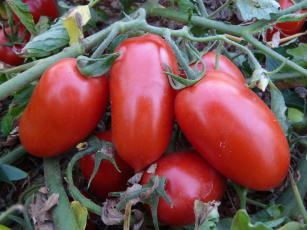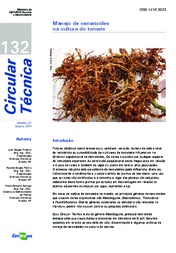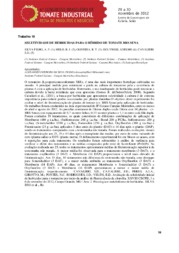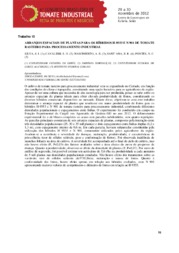Pest diagnosis and control in tomato production systems
Pest diagnosis and control in tomato production systems

Photo: DUVAL, Alice Maria Quezado
The tomato is one of the most cultivated vegetables in the world, and is the target of countless plant health problems. Embrapa Vegetables has historically produced research in plant health within this production chain under the scope of the Tomato Genetic Improvement Project. However, the increasing demand for studies aimed at perfecting pest diagnosis methods and generating essential information for management has signaled the need to create a specific plant health project. Thus, this project aims to contribute to reduce losses caused by pests in commercial tomato crops. Surveying pests will enable the identification of the main problems so that they can be characterized. Epidemiological studies will be conducted for key pests, and the information thus generated will be used for the development of control practices, including the recommendation of commercial cultivars with pest resistance, disease forecasting, use of rootstocks for grafting, reduction of inoculant sources in the fields, and biological and chemical control. The main pests addressed in the project are: fungi, bacteria, viruses, nematodes, insects, and weeds. The main objective is to contribute to make the implementation of integrated tomato production systems viable in the near future. The universe of pests is extensive and dynamic, and the project activities are focused on selected key pests; however, efforts will be made to effectively contribute to responding to identified current and future demands, always in partnership with the production sector.
Ecosystem: Amazonic, Extreme South, Atlantic Forest, Caatinga Region and Mixed forests, Cerrados Region, Pinheirais Region
Status: Completed Start date: Mon Oct 01 00:00:00 GMT-03:00 2012 Conclusion date: Wed Sep 30 00:00:00 GMT-03:00 2015
Head Unit: Embrapa Vegetables
Project leader: Alice Kazuko Inoue Nagata
Contact: alice.nagata@embrapa.br
Keywords: Doenças, Solanum lycopersicum, Manejo, Tomateiro



